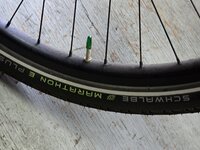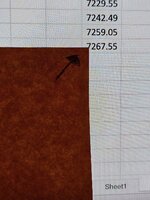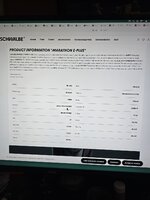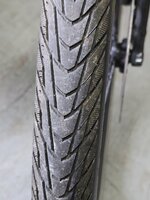Wow, this is a long lived thread. I've had great experiences with this tire for about 3 years, and recently I've noticed it has become very popular on SUV bikes and the new all-rounder/ATB SUV bikes like the Tern Orox, but I haven't heard much about it in the mtb cycling press. I found this thread because I was curious how others felt about it. I should mention I've only ever used the 365 variant with the DD/Greenguard/E-50 casing. I've used it on an old (2017) R&M Homage I converted to light trail use for my wife, believe it or not, and a hard-tail XC e-mtb. In both cases, I use it as the front tire. The rear on the Homage is a Hurricane and the rear on the XC is a Maxxis Forekaster. We live in the San Francisco Bay Area, but I have done some light snow riding in Norcal on the Homage with it.
Although I am not a particularly technical rider, I have to stress that there is an incredible variety of trail conditions out here, really everything you can imagine, and you can encounter it all on a single ride, apart from snow and ice--sand, chunky rocks, roots, mud, small puddles, loose, loose over hard, exposed, blasted rock faces, gravel, you name it. Some of the trails and fire trails we ride, although mostly non-technical and not singletrack, do have very small jumps sometimes, as well as somewhat technical rooty or rocky climbs, and there is an absolutely brutal descent down the back side of a trail called Miwok Trail in the Marin Headlands, for instance. Despite Schwalbe's rating of this tire as not a 'true' mtb tire, albeit very close to one, I have had absolutely zero issues with the JW 365 on either of these bikes. It has never lost its grip on a banked turn or a steep, rutted gravelly fire road, and also never locked up on me. On the road, you wouldn't even know it's intended for any off-road use, and is whisper quiet. Corners great in the rain. It is the ideal all-rounder tire, imo. I haven't tried the regular JW, but the 365 is just about the perfect e-mtb tire if you also want to ride fast on the road after your mtb ride because you ride to and from your off-road, a few miles each way, rather than driving. And then you clean your bike and maybe want to use it for some light urban cycling to go to an appointment or pick up some milk the next day. It's like a magic tire. You can seamlessly switch from any road or trail condition to any other road or trail condition at any time. And like most Schwalbe tires, it is bombproof. I can't say enough good things about it.
The only gripe I have about it is that it is not tubless ready, so I cannot run it on the rear wheel of my XC bike as well after building up a new wheel with a Halo Gravitas rim, which is extremely deep. I tried a couple of Schwalbe tires on there and it was not happening. It took about two hours to get my Rekon back on it from the old rim. I decided as soon as I got a flat, I would switch to tubeless on that wheel, which happened last week, thankfully in my garage somehow. So I'll be running a Nobby Nic back there instead, and keeping the JW 365 on the front, which has a Halo SAS rim, which is much wider and onto which it is easier to install a steel beaded tire. I have a second Gravitas rim, and decided to stick with the SAS and keep the second Gravitas as a back-up for my rear wheel, just so I can keep the JW 365 up there.
They've even released a fatbike version now, although it is a bit of a wonky size, 27.5 x 4.00; if they offered it in 26 x 4 and also offered a 27.5 x 2.25/2.35 folding variant, you would never need another tire. We also have an HP Velotechnik Scorpion FS20, a really old one, it's a 2007, that I had factory retrofitted with the e-trike kit several years ago. I run 20" Marathon GT 365's on the trike, but if they made a 20" JW 365, I would switch in a heart beat. I have a fat bike that can take 29" wheels for summer riding, and if I ever build that wheelset, I will definitely be slapping the JW 365 29 x 2.6 tires on there, both front and rear.
If you use an e-mtb for hybrid purposes, or even a gravel bike or touring bike, or an SUV bike, you won't be disappointed with this tire. It says a lot that many e-bikes are fitted with this tire OEM now.



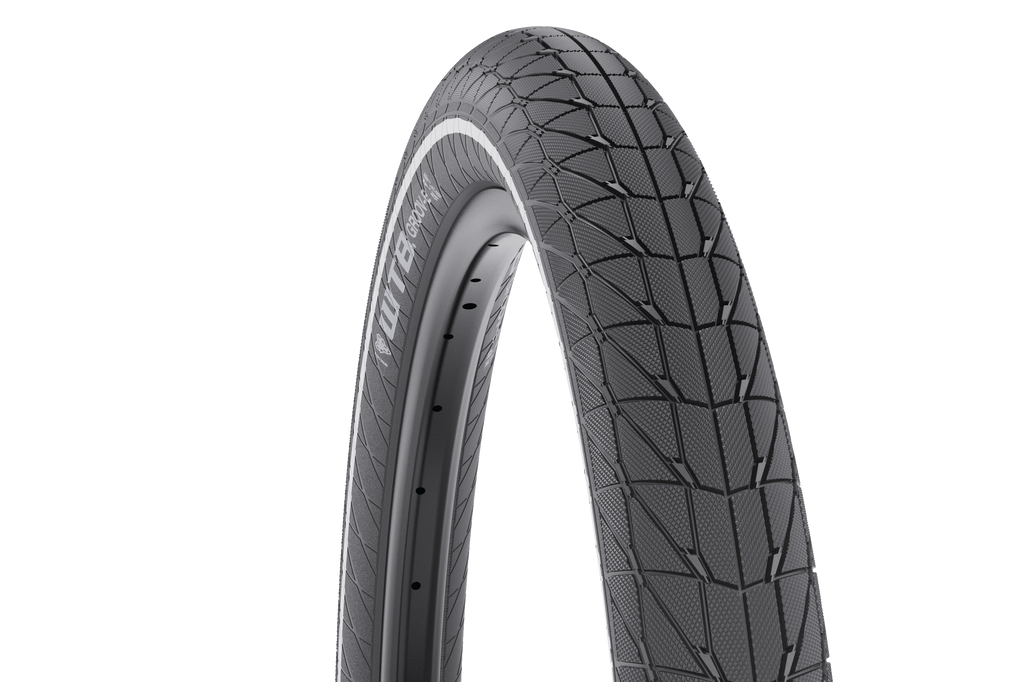

.svg)
